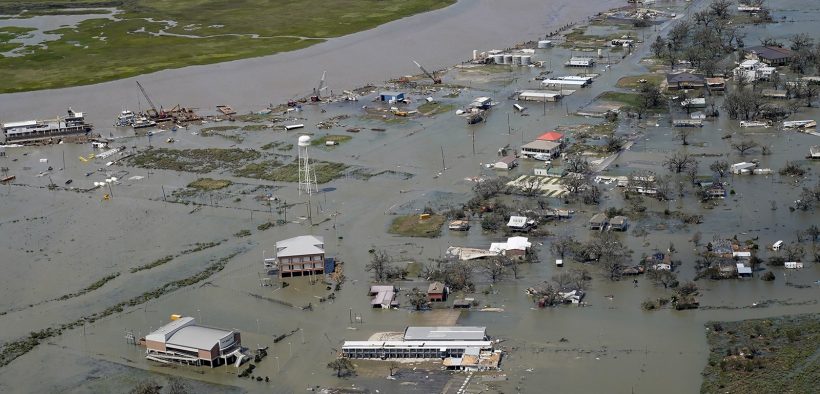As Hurricane Laura Hits, Faith-Based Disaster Relief Groups Ready to Lend a Hand

In recent months, Lara Martin’s life has been one disaster after another.
Tornadoes in Tennessee. Wildfires in California. A derecho in Iowa. Now, Hurricane Laura.
“We’ve been busy,” said Martin, the interim director of U.S. disaster response for the United Methodist Committee on Relief, better known as UMCOR.
Martin spends much of her time on the phone, coordinating support for local emergency response teams of trained Methodist volunteers in different parts of the country. UMCOR has also spent the past few months getting supplies such as cleanup kits for flooding, masks, hand sanitizer and other essentials needed to get the job done and keep people safe in the midst of a pandemic.
This week, she’s been helping those teams make last-minute preparations for Hurricane Laura, which was expected to cause widespread damage in Louisiana and Texas. On Thursday (Aug. 27), she was awaiting word from trained volunteers doing initial damage assessments.
As Hurricane Laura made landfall as a category 4 hurricane Thursday morning and continues her trek north, at least six people have been killed and hundreds of thousands of people left without power.
As the storm passes and assessments are in, teams drawn from 15,000 trained volunteers in Louisiana can get to work.
Faith-based disaster-relief groups such as UMCOR are often among the first to respond when disasters strike—cleaning up debris, providing shelter, handing out hot meals, and helping with long-term recovery.
That work hasn’t stopped, despite the challenges of the COVID-19 pandemic.
Sam Porter, national director for Southern Baptist Disaster Relief, expects as many as 20 response sites set up along the Gulf Coast to help after Hurricane Laura. Volunteer teams from Texas and Louisiana are all set to respond, he said, with chainsaw crews to clear debris, teams that can put on temporary roofing, and more than a dozen mobile kitchens.
Those kitchens will be providing as many as 100,000 meals a day by next week.
In the past, those meals would have been distributed by Red Cross trucks driving through the community. With COVID-19 restrictions in place, the Baptists plan to set up drive-throughs at churches in the areas affected by the hurricane, handing out meals in clamshell containers.
“We’ll have a line of cars and get to work like Chick-fil-A,” he said.
For now, the Southern Baptists plan to rely on local volunteers, rather than having people from out of state come to help.
They also hope college students from the area who are studying online rather than attending classes in person might be willing to help out as well.
Porter said he’s asking pastors and other church leaders to put their young people in touch with Baptist disaster relief organizations. “We’d love to see college students come out and lend a hand,” he said.
Those outside the region can pray, Porter said. And give to disaster relief groups that can quickly get relief to people on the ground.
Right now, Porter said, Southern Baptist disaster relief groups have the supplies they need in place. But more may be needed. And funds are harder to come by these days, with the ongoing economic crisis. “God’s been able to help us meet those needs anyway,” he said.
Martin also encouraged people to give. And to pray for those affected by the hurricane. “Lots of folks are having the worst day of their lives,” she said. “Keep them in prayer.”



